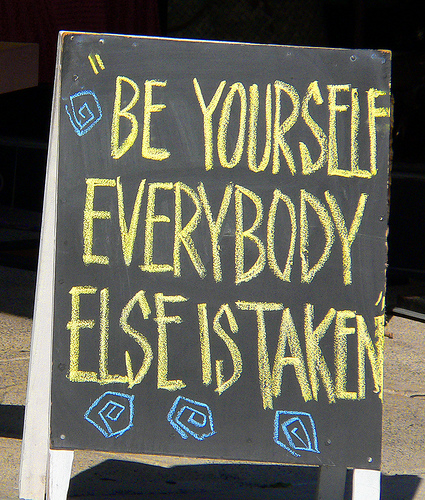(photo credit) Len Matthews via Compfight
It goes without saying that learning a foreign language can make you smarter, more successful and outspoken (see how it can help business owners). But happier? Now, that’s a bold statement. Read on and judge for yourself.
Inspiration: “6 Possible Secrets to Happiness”
These kinds of posts usually don’t make too much sense – there’s just so much to happiness! I gave this one a read, though, and quickly found out two things. One: the tricks and secrets mentioned were pretty common sense – nothing too difficult there. Two: learning languages had a lot in common with each of those. With this in mind, I decided to write my own riff on IO9’s blog post – focusing on foreign language study. Here goes:
1. Learn a language to surround yourself with happy people
This makes a lot of sense, and has been proven by experiments: happiness is contagious. So when a language is learned, new patterns of interaction become possible. It’s useful to plan for this (“I want to learn German to better understand jokes and songs at the next Oktoberfest”) and actually enjoy this when it comes (“the English expat bar is boring, let’s go have tapas with someone we can chat with!”).
2. Enjoy mastering a skill
Take away a DIYer’s toolbox. Or painter’s brushes. Go on, see what happens.
Maybe I’m overreacting here – but I really think that learning a foreign language can be enjoyable – and as the stress connected with mastering it becomes more bearable, the space for happiness emerges. With a bit of elbow grease, then, you can achieve something you’re really proud of!
3. Become self-reliant
Quick answer? I could say “my husband is a vegetarian” in Spanish when I visited Spain!
(Thanks for this one, Naomi!)
This is a very powerful feeling, and for many, a source of happiness: to be responsible for what is happening, and take control of a situation. This can be the case with your study (“I decided to change my teacher; now I feel I use my time better”) or, crucially, when actually using the language (“I don’t need an interpreter for this one, thanks.”) Try saying these sentences aloud to yourself and see if you don’t grow two inches taller.
4. Pretend, mimic, enjoy
People who get botox are unable to frown. Result: they feel happier. Yeah, I couldn’t believe that either.
But think on this for a second: what’s the safest, most reasonable thing to do when listening to a language you don’t fully understand? If you thought “smile,” we may be on to something here. The botox paradox works both ways, you see: smiling a lot can make you feel happier for no other reason than just smiling.
So why not get out there and try out your language skills? Fail, learn and smile. And soon enough, with new expressions and patterns, you’ll feel much more alive.
5. Language learning as therapy?
Folks, this may be too far-fetched, I admit. The IO9 article quotes sources that prove therapy’s value-for-money here, and I won’t disagree or interfere with this claim at all.
Here’s what I can say, though: foreign language learning and psychology have always been connected. And whatever you do in one area will have some influence in another. So if learning a foreign language can make you feel better – chances are, the therapeutic effects are actually there.
This is something I’d love to talk to you about, guys, so get in touch with any hints / pointers here!
6. Stop trying.
Love that you suck. Be able to start again. Analyze what went wrong / right.
There is a painless, effortless state where language is learned so easily – but it takes a few painful moments to get there. What’s important, though, is progress – and the fact that you’re focusing on going forward, rather being forever obsessed on goals and results.
And even if this is the only thing that language learning brings to your life – it’s still good, don’t you think?
How does language learning make you happier, dear reader? Elaborate in the comment box below.
Wiktor (Vic) Kostrzewski (MA, DELTA) is an author, translator, editor and project manage based in London. When he works, he thinks about languages, education, books, EdTech and teachers. When he doesn’t work, he probably trains for his next triathlon or drinks his next coffee.
BRAVE Learning (formerly known as 16 Kinds) is a lifelong learning and productivity blog. If you enjoy these posts, please check out one of my books and courses.
My recent publications, and my archive, is now all available on my new project: PUNK LEARNING. Hope to see you there!


